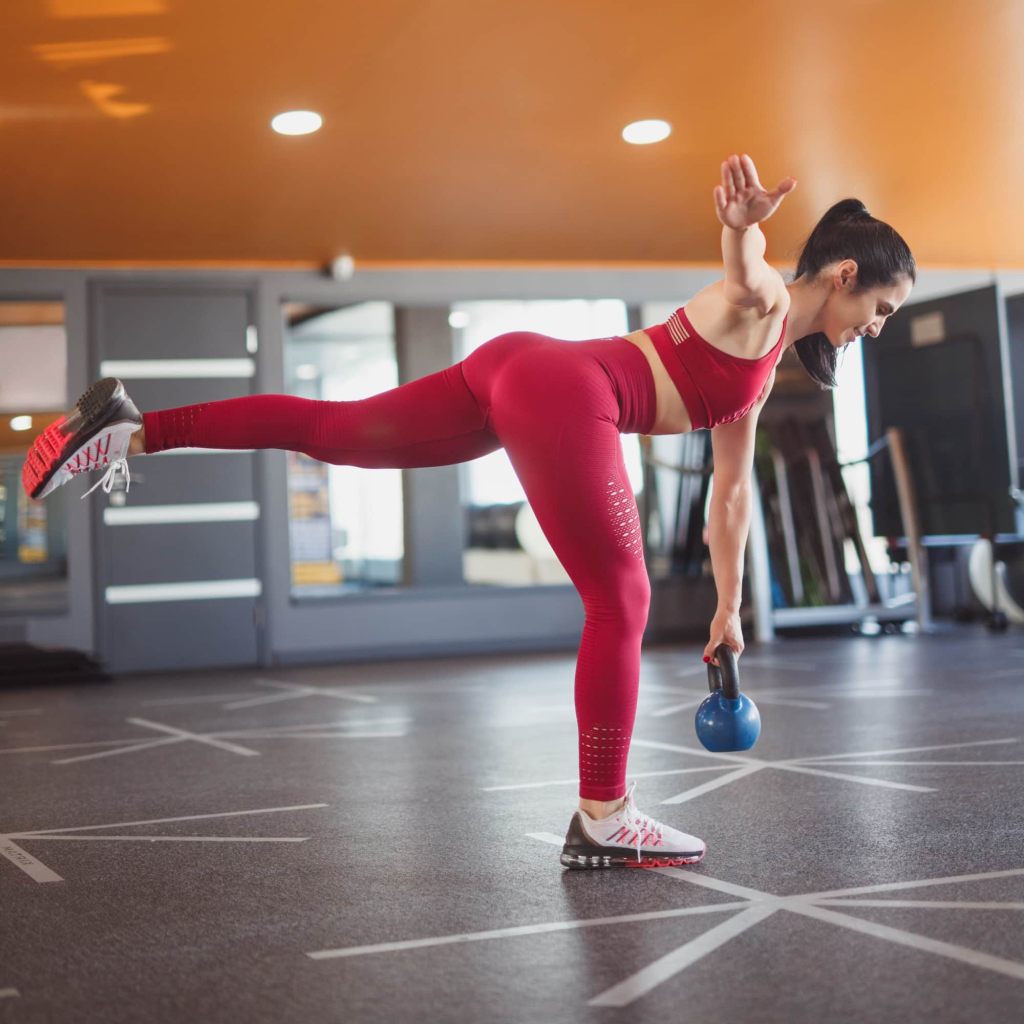I’ll give myself some credit: after months of practice, I can now hold a single-leg deadlift on my right leg for a few seconds without falling over, but I can’t say the same for my left leg – I’ve just barely missed the coffee table too many times to count.
According to NASM-certified personal trainer Amanda Katz, unilateral movements – like single-leg deadlifts – often reveal these imbalances within the body, and that’s not necessarily a bad thing.
“This gives us a chance to move more efficiently and ultimately, get stronger,” Katz says. “Like a traditional deadlift, the single-leg deadlift benefits include stronger glutes, hamstrings, and core. But, with this single-leg variation, you can isolate one glute at a time. Plus, a trainer can immediately see any deficiencies a client may have that is preventing them from moving functionally – i.e. rotated pelvis may indicate trouble moving laterally.”
That doesn’t mean you have to just deal with falling over, though. Instead of going from zero to 60, work in a single-leg deadlift modification to build up your balance and perfect your form. “I actually coach that clients keep their rear foot planted. This variation is called the staggered stance,” Katz says.
Katz suggests hinging the hips to pick up the load and then checking your posture – your shoulders should be back and your chest proud. Then, one foot is placed forward and the other foot is back – placed about 6-8 inches behind the other, with the heel off the floor, shoulder-width apart. The front leg should hold 60-80 percent of the load.
“As the client becomes more comfortable here, the rear foot can go back further,” Katz says. “This tip is beneficial because the client feels safe executing a hip hinge with a heavy load as the deadlift is intended, as opposed to losing their balance.”
Overall, Katz suggests boosting your strength and balance before attempting to lift the rear leg up off the floor.
As for some other tips that’ll improve your performance during single-leg deadlifts? Katz says that working on your core strength will not only make it easier for you to lift your leg off the ground, but also protects the back from rounding. It’s also not a bad idea to evaluate your workout shoe choice – Katz loves Nike Metcon because it’s flat, which helps keep your foot and ankle stable and in touch with the ground.
Click here for more health and wellness stories, tips, and news.
Related: I’m a Trainer, and This Is the Bodyweight Exercise That Has Decreased Tightness in My Back

